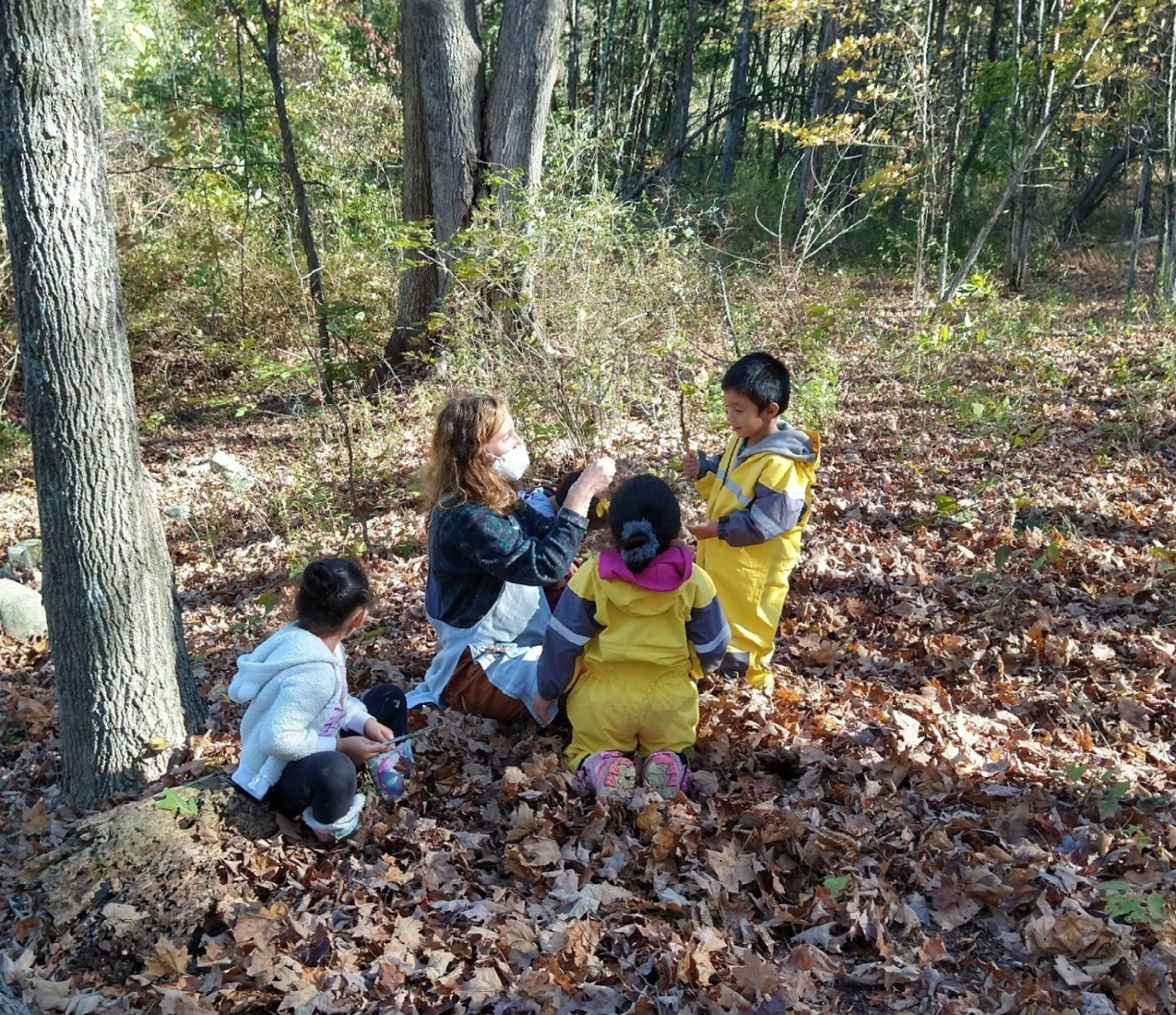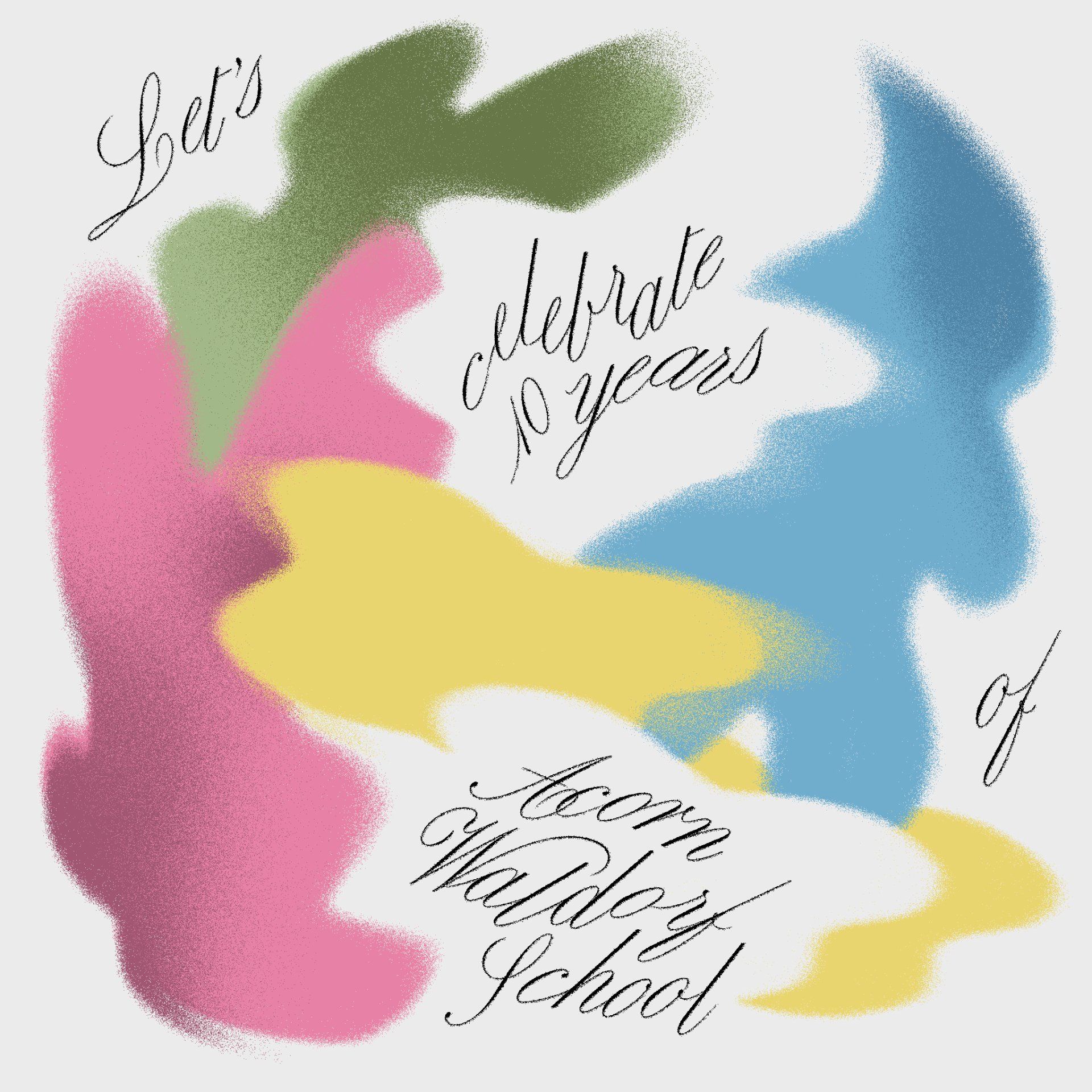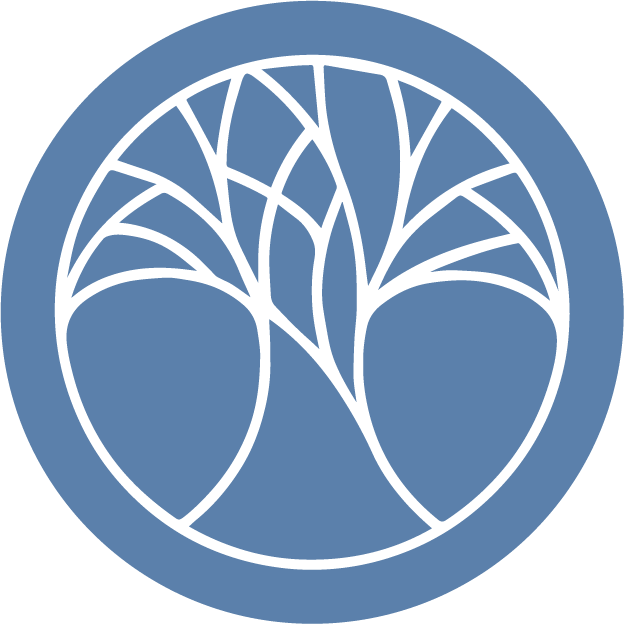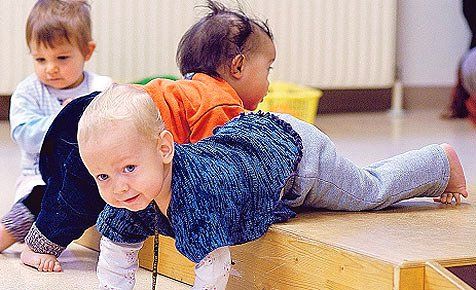“the young child does not possess the self-awareness to feel inadequate…” how fortunate
Inadequacy as a Doorway to Learning
By TERRY ELLIS and CHIP ROMER
Imagine a young child learning to stand for the first time. He has seen his older sister do it countless times, and he is determined that he, too, will stand and then walk towards the things that interest him. He crawls to the coffee table and pulls himself into an upright position, then his legs wobble and he promptly falls back onto his bottom. He pulls himself up again, and falls again. Again, and again. The wise parent watches without intervention, ensuring safety but not interrupting the learning that is going on. The child may become distracted at times, but he will keep trying until he is eventually standing solidly and walking confidently towards his interests.
At no time in this learning process did the child feel inadequate about his initial inability to stand and walk. He simply intended to stand and kept trying until he was successful. While he may have become frustrated, the young child does not possess the self-awareness to feel inadequate. He simply directs his will towards that which he wants to achieve, and, through trial and error, eventually gains mastery. As parents watching this effort, we might be struck by the vulnerability of our child or by his heroic perseverance, yet he isn’t feeling vulnerable or proud of his determination. He simply wants to stand and walk.
For the young child, inadequacy is a way of life. Fueled by curiosity and desire, he is continually learning how to manipulate his body and how to interact with his environment. Inevitably, in our culture there comes a time when a child becomes self-aware in relation to the rest of the culture and its norms. The child becomes aware of his inadequacy. Shame is born, and with it a sense of vulnerability. Metaphorically, this can be seen as “the fall” from the paradise of early childhood.
In Waldorf education, there is a conscious intention to delay this onset of self-judgment, a desire to “keep children young” so that unself-conscious desire for learning can endure. This is one reason that Waldorf educators hope to protect children from media exposure, where commercial content creates premature desires and judgments within children. This is a reason why Waldorf educators discourage the photographing and videotaping of children in their schoolwork and play—seeing themselves in pictures or on the screen awakens self-judgment; rather than remembering the joy of playing the lion in a second-grade play, the child watching a video of that play is likely to measure the quality of her performance against that of her classmates. This invites self-judgment; and feelings of inadequacy, vulnerability and shame enter into the young child’s life.
In our heroic culture, our common defense against the shame of inadequacy is to establish expertise. A ten year old who has yet to master riding a bike decides he “doesn’t like bikes” and becomes an expert skateboarder instead. He diverts attention away from the shame of his inadequacy and toward his expertise. As adults in this culture, we continually fix ourselves into areas of competence or expertise in order to protect against shame—and this stunts learning, which by its nature is dynamic, experimental and includes failure.
By focusing on what we know already—by becoming experts—we learn not to learn. As experts, we live only in the well known. We do not explore the frontiers of our comfort zone, where learning—exploring something new and unfamiliar—necessarily occurs; instead, we remain in our defended expertise. Rather than learning, we end up static, repeating that which we already know.
Turning away from shame has become an entrenched neural pathway—biologically for individuals in our culture, and metaphorically for our culture itself. We default to our comfortable expertise without even thinking about it. Our aversion to the shame of inadequacy is so habitual that it creates a kind of trance state. This trance obscures the need to grow and learn. The trance blocks natural—childlike—excitement for the discovery of the unknown. It is as if the young child has decided he is content to be an expert crawler and denies any interest in learning to walk. We habitually settle for the static safety of familiarity instead of expanding through our inadequacy towards the unknowns where expansive learning lives.
In groups (schools, businesses, charter school development teams), expertise resides at the fixed center, and learning—with its requisite inexpertise, uncertainty and inadequacy—lives on the periphery. A group tends to rely on the competence and confidence of its central experts. Group learning, however, is a dynamic process and is best served by the most sensitive member, often the most marginal or peripheral member, speaking about her sensitivity. This act names the shame that lies at the center of the trance of expertise; once that shame is named the trance is broken, inadequacy can be explored and learning can occur for the whole group. The sensitive “inexpert,” much like a child, lives on the periphery of the culture—the frontier of inadequacy; when her process of discovering the unknown—learning—is shared with the center, the whole group culture learns.
In our culture of expertise, the very process of learning has been scapegoated because it requires the dismantling of expertise, which brings with it exposure to the shame of inadequacy. Innovative charter schools are seen as experimental laboratories, whereas mainstream schools tend to be fixed in their established expertise. Charters live on the periphery of public education, pushing the boundaries through experimentation—and commonly experiencing inadequacy—in order to grow and support new learning. They are often scapegoated by the mainstream because they threaten the cultural trance of defended expertise. Charter schools inspired by Waldorf education are currently on the periphery of the traditional Waldorf culture, and their willingness to experiment on the edge can sometimes be seen as threatening.
Attuning our sensitivity to our own inadequacies awakens us to learning opportunities. When we feel ourselves pressing against our inadequacies, we are on the edge of something we do not know but are ready to learn. Rudolf Steiner, in founding the first Waldorf school in 1919, placed teachers outside of their field of expertise: the mathematician taught language arts; the artist taught science. Steiner believed that teachers striving beyond their expertise—or living dynamically with their inadequacies—would serve children as the best examples of learning how to learn. Whether we are educators, charter school developers, parents or mentors, we too can model how to learn by summoning the courage to live in the dynamic tension of our inadequacy. Expansion—individual and cultural—will be our reward.
Terri Ellis and Chip Romer were lead developers of Credo High School in Sonoma County, California, where Chips is currently Executive Director and Terri is a board member. For more information, visitwww.credohigh.org.

We are excited to share a new documentary about the work the Neighboring Tree Project did with a neighboring Head Start and the creation of an outdoor forest program for the children in their care. 🌿 Over the past months, Elia Gilbert , one of Acorn's kindergarten teachers, has been working with the Agri-Business Child Development Center team of educators to produce a 30 minute video which documents their collaborative process in creating an outdoor forest program for the children in their care. We hope this will inspire future Neighboring Tree Project collaborations, as well as other Waldorf educators to reach out to their neighbors in similar ways. We are now looking for more "branches" to our NT P work, as well as more Waldorf teacher people-power to work on the ground with our neighbors. After seeing the video and getting a sense of our work, please get back to us with any inspirations or feedback. We'd like to hear from our community! We hope you enjoy this film!

Let's Celebrate Together! Acorn Waldorf School is celebrating its 10 Year Anniversary! We began this wondrous journey with 8 intrepid families who took a chance on a tiny new program and, with their support and the support of so many families in the decade since, have grown into a vibrant center for Waldorf Early Childhood Education in the Hudson Valley. I can’t think of a better way to mark this auspicious moment in our school’s biography than making a meaningful contribution to the Sunbridge Institute Diversity Fund . During the entire month of June, for each donation to the Sunbridge Institute Diversity Fund, Acorn will give another $25. In the line where it asks, " My connection to Sunbridge is? " Please write " AWS 10 Year Anniversary ". Our hope is to inspire at least 50 individual donations but we will happily go above and beyond! If you or your family has benefitted from, enjoyed or simply appreciate what’s happening at Acorn, please consider joining me in support of this all important endeavor. This wonderful fund supports BIPOC individuals in the Sunbridge Institute Waldorf teacher education programs, creating a more diverse pool of Waldorf teacher education graduates who will be fully prepared to take on educational and leadership roles in Waldorf classrooms and schools. We are grateful and awed by Acorn’s continually star-strewn journey. May the next ten years continue to be blessed. Together we can make a difference! 🧡

The Neighboring Tree Project (NTP) is an AWS initiative that aims to create community partnerships with our "neighboring trees," i.e. local early childhood educators, schools and centers who are doing the important work of caring for children from underserved, migrant farming or inner-city backgrounds. In building these relationships, we are working collaboratively to bolster the programming offered, taking individual needs and current staff into consideration. The goal is to empower our neighbors with tools and pedagogical enrichment. We also hope to learn: we want to get to know our neighbors, the children and families in our region, and learn from whatever is brought to the group together. The forest offers nutrients to all its trees, and one tree shares with another for mutual health of the whole. Read on to learn about our first two endeavors, Agri-Business Child Development in New Paltz, NY and Meagher Pre-K in Kingston, NY.




